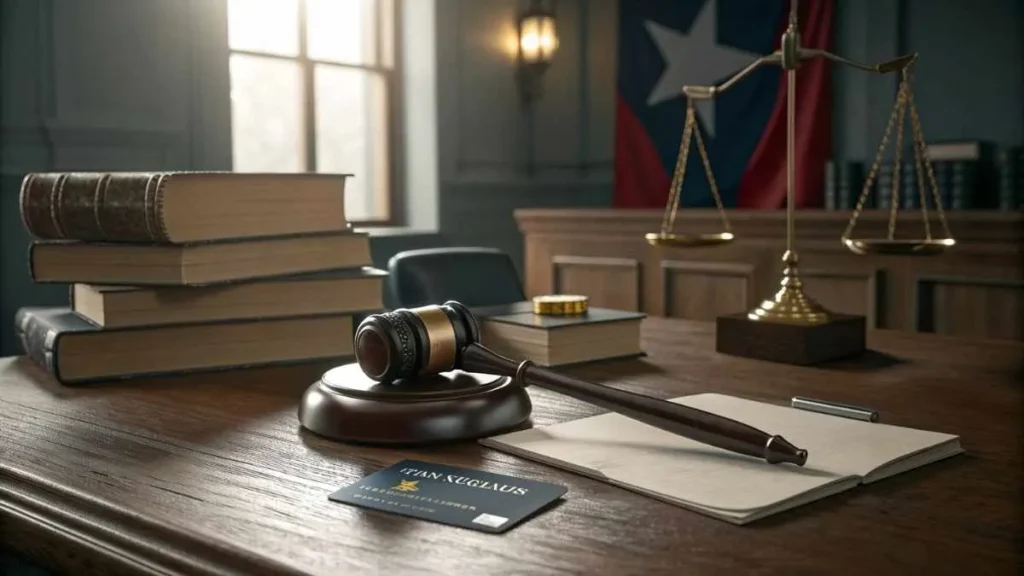
Credit card theft is one of the most common financial crimes in Texas, and even a first-time offense can carry serious consequences. Many people assume that if they’ve never been in trouble with the law before, the courts will “go easy” on them. But under Texas law, credit card abuse is treated as a felony in most situations—even for first-time offenders.
If you or someone you know is facing charges, it’s important to understand what the law says, the possible penalties, and what steps to take next. This guide breaks down Texas law in plain language so you know what to expect.
What Counts as Credit Card Theft in Texas?
In Texas, credit card theft (often referred to legally as credit card abuse) doesn’t just mean stealing a card from someone’s wallet. The law covers a wide range of activities, including:
- Using someone else’s card without their permission
- Possessing a stolen or lost card and intending to use it
- Using a fake, altered, or expired card
- Buying, selling, or transferring credit cards without authorization
- Presenting a card knowing it was not issued to you
In short, if you intentionally use, possess, or try to benefit from a credit or debit card without the owner’s consent, it can be considered credit card abuse in Texas.
Texas Law – Credit Card Abuse Under Penal Code §32.31
Credit card theft is governed by Texas Penal Code § 32.31 – Credit Card or Debit Card Abuse.
Under this statute, a person commits an offense if they:
- Use a credit/debit card without the owner’s consent
- Use a fictitious or canceled card to obtain goods or services
- Possess someone else’s card without authorization
- Buy or sell credit cards without the issuer’s permission
Important Note:
Texas treats credit card abuse as a state jail felony in most cases. This means it is already considered a serious offense, even if it’s the first time someone is charged.
Is a First-Time Offense a Felony or Misdemeanor?
This is one of the most common questions people ask.
- Most cases: A first-time offense for credit card abuse is a state jail felony in Texas.
- Felony classification: State jail felonies are the lowest level of felonies, but they are still more serious than misdemeanors.
- Aggravating factors: If the victim is an elderly individual (65+ years old), the charge may be elevated to a third-degree felony, which carries even harsher penalties.
In other words: Even if it’s your very first brush with the law, you’re likely facing felony-level charges in Texas.
Penalties for First-Time Credit Card Theft in Texas
The penalties for a first-time offense depend on how the case is charged.
State Jail Felony (Most Common)
- Jail Time: 180 days to 2 years in a state jail facility
- Fines: Up to $10,000
- Probation: Sometimes offered instead of jail, depending on the case
- Restitution: Offenders may be ordered to repay the victim
Third-Degree Felony (If Victim is Elderly or Aggravating Factors Apply)
- Prison Time: 2 to 10 years in prison
- Fines: Up to $10,000
Additional Consequences
- A felony conviction on your criminal record
- Loss of certain rights (like owning firearms)
- Barriers to employment, housing, and credit opportunities
Possible Defenses
Not every credit card theft case leads to a conviction. Common defenses in Texas credit card abuse cases include:
- Mistaken Identity – The accused wasn’t the person who actually committed the crime.
- Lack of Intent – The accused did not knowingly use the card without permission.
- Authorization Misunderstanding – The cardholder may have given permission but later claimed otherwise.
- Insufficient Evidence – The prosecution cannot prove guilt beyond a reasonable doubt.
Every case is different, which is why consulting with a Texas criminal defense attorney is critical.
Long-Term Impact of a Conviction
A first-time offense might sound less serious than repeat charges, but in reality, a felony record follows you for life. Some of the long-term effects include:
- Employment difficulties – Many employers won’t hire applicants with theft-related felonies.
- Housing barriers – Landlords often run background checks and may reject applications.
- Financial challenges – Getting approved for loans, credit, or professional licenses becomes harder.
- Reputation damage – A felony conviction can affect personal and professional relationships.
What to Do If You’re Charged
If you are charged with credit card theft in Texas, here are the most important steps to take:
- Contact a Texas criminal defense attorney immediately
- Do not try to handle the case on your own. Legal representation is essential.
- Do not speak to investigators without a lawyer
- Anything you say can be used against you in court.
- Explore legal options
- Depending on your case, your attorney may negotiate for probation, plea deals, or participation in diversion programs.
- Take the charges seriously
- Even a first-time offense can result in a felony record. Acting quickly can make a huge difference in the outcome.
Read Also- Georgia Credit Card Debt Statute of Limitations
FAQs About First-Time Credit Card Theft in Texas
Is credit card theft always a felony in Texas?
Most cases are classified as a state jail felony, but if the victim is elderly or if aggravating circumstances exist, it can be upgraded to a third-degree felony.
Can I go to jail for my first offense?
Yes. Even first-time offenders face up to 2 years in a state jail facility. In some cases, probation may be an option, but it’s not guaranteed.
What if I didn’t actually use the stolen card?
Simply possessing someone else’s card without authorization can still result in charges under Texas Penal Code § 32.31.
Can a credit card theft charge be dismissed?
It’s possible if there’s insufficient evidence, a strong defense, or if a plea deal is reached. Only an attorney can evaluate your specific situation.
Will a conviction stay on my record forever?
Yes. In Texas, felony convictions generally cannot be expunged and will remain on your record permanently.
What should I do first if I’m arrested?
Remain calm, avoid making statements to police, and contact a criminal defense lawyer right away.
Conclusion
Facing a first-time credit card theft charge in Texas can be overwhelming, but understanding the law is the first step in protecting your rights. Under Texas Penal Code § 32.31, most credit card abuse cases are charged as state jail felonies, carrying the possibility of jail time, heavy fines, and long-term consequences—even for first offenders.
If you or someone you know is dealing with this charge, the most important step is to consult with a licensed Texas criminal defense attorney who can guide you through the legal process, evaluate your options, and work toward the best possible outcome.

Emma Rose is a U.S.-based personal finance writer and a regular contributor at Cardix.us. She focuses on topics like credit cards, credit scores, and everyday money management. Emma’s writing makes complex financial concepts simple and practical, helping readers make smarter credit and spending decisions with confidence.


